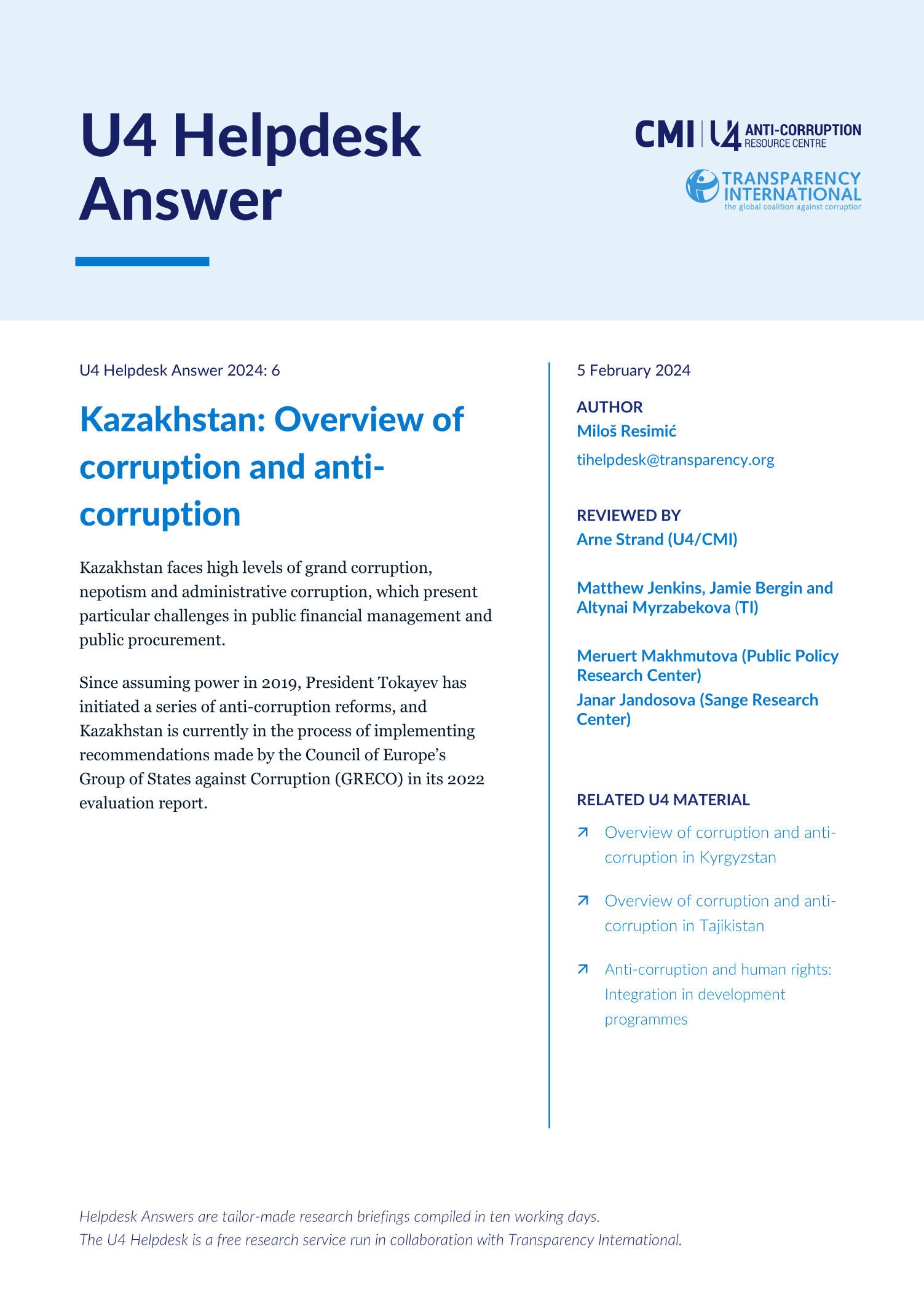Main points
- Grand corruption, nepotism and administrative corruption are all evident in Kazakhstan.
- Important anti-corruption reforms have been launched since the 2019 power shift and unrest in January 2022. There is also evidence to suggest that the state has taken measures to implement many of the recommendations contained in the 2022 GRECO report.
- The public financial management cycle remains vulnerable to corruption, primarily due to a lack of transparency, inadequate oversight of the quasi-public sector and low competitiveness in public procurement.
- Corruption is prevalent in the executive branch, law enforcement, local government administration, the education system and the judiciary.
- Despite political constraints on civil society and journalists, coalitions of civil society organisations and independent media outlets have been active in monitoring and highlighting corruption risks in public contracting.



